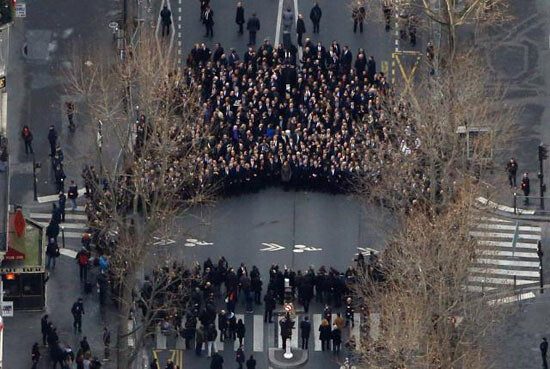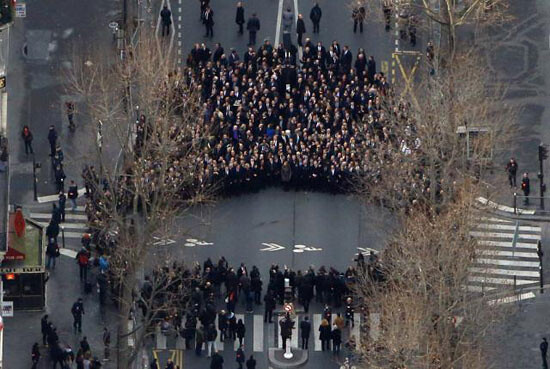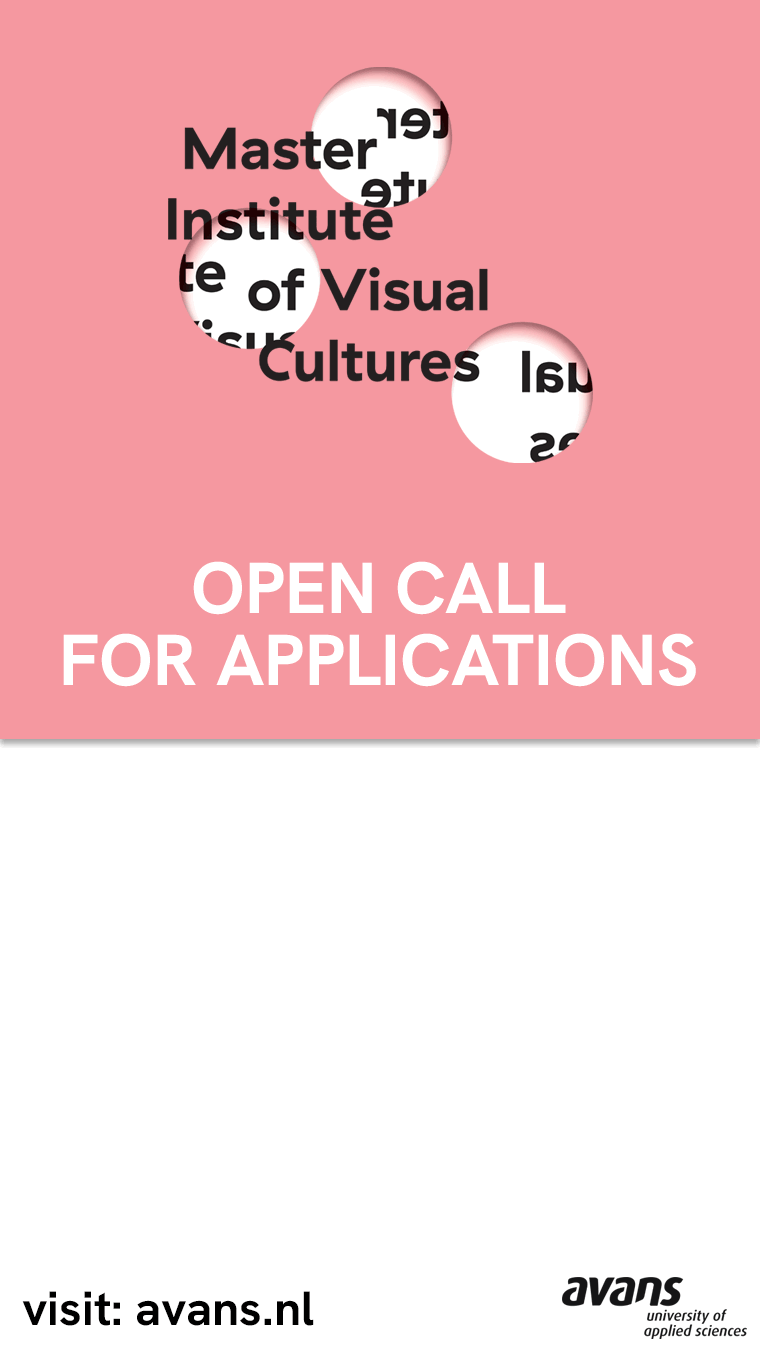The perpetrators of the crime against the French weekly Charlie Hebdo were French citizens. The fact that they are not foreigners is an irony and does not explain much, as many mistakenly perceived, about the factors leading up to the current (historical) moment. The fact that Western cultures see this as a paradoxical trait of modern societies points to a deeper flaw in the structure of modern societies themselves.
For the criminals at hand to qualify as French, one expects all apparatuses of the state and society to treat such a heinous act as an isolated, individual case—or at worst, an action connected to a narrow, exceptional local community concerned with local events. This expectation also requires that the perpetrators not presume they are struggling for a cause that matters to millions of people beyond their national borders. Nor does it exempt the French public, and more generally the European public, from understanding what happened as a matter that doesn’t extend beyond their own borders. Otherwise, what would it mean to attach such an identity or belonging to a homeland?
A modern state presumes equal loyalty from all its citizens and an equal submission to its laws. Any violation of the law is to be treated as an isolated, individual case. To this day, modern (Western) societies have failed to integrate all inhabitants as citizens. It is most likely that touristic postmodern philosophies, which for years have celebrated this civic fragmentation in the cosmopolis as a huge achievement, have, due to their intellectual laziness, paved the way for the destruction we witness today. Every metropolitan center is comprised of religious, sectarian, and ethnic cantons. In our intellectual downtime, we muse on the idea of a Koreatown in New York and a Chinatown in London as ideal backdrops for souvenir photos. Yet we forget to concern ourselves with the following question: Why haven’t modern cities been able to break down groups into scattered, law-abiding individuals?
Some of modernity’s hallmark beliefs, such as citizenry and individuality, have perhaps continued to be subordinate to historical formations of identity—as long as the borders between states remain solid and hard to penetrate.
Numerous technologies have emerged since the early waves of immigration. Meanwhile, nation-states seem to prefer to look away from social harmony as their foundation. Let us not forget how nation-states in Europe have historically created clear rules and fortified borders to ensure their social, religious, and ethnic harmony. The European Union, since its inception, has been in essence an attempt to reorganize prehistoric divisions into a new European whole. Today, Europeans are Roman, Germanic, Gaul, Catalonian, Celtic, and Slavic. They are also Turk, Kurd, Arab, Tatar, Chinese, and Japanese.
Have we tried to mend the ensuing rupture that divides modern societies and threatens to destroy them? I don’t think so. The Charlie Hebdo attack is a harbinger of things to come. And not for the amount of blood spilled. On the same day that the Kouachi brothers killed thirteen people in Paris, an explosion in the Yemeni capital of Sanaa ravaged more than one hundred lives between the dead and the injured. The Yemenis die as if they never lived. This is true mainly because the French blood flowed in a place full of light, in the City of Light, while the Yemeni blood flowed in darkness. By pointing out this contrast, it is not my intention to pay respect to the Yemeni blood at the expense of the French, nor is it an attempt at Maoist equalization. The irony is in the fact that the murder in Paris did not only befall a few individuals—among them some celebrity cartoonists. Rather, the effects are much more widespread: what happened in Paris could destroy the entire world. It is a warning that the entire ship is about to sink. The Yemeni casualties are larger in number than the French. Yet the Yemenis were floundering in the midst of a turbulent ocean while the French ship was supposed to be safe and stable, even capable of rescuing the Yemenis themselves.
The Charlie Hebdo massacre is far more horrific than that of 9/11. Once again, this is not a game of comparing numbers. It also has little to do with whether it took place on the “brighter” side of the world. Thirteen years ago, there were forces within Muslim and Arab societies that were connected with modernity and that amounted to sufficient number and influence to make a considerable and lasting contribution to their societies. Back then, it would have been possible for the Western intelligentsia to lend its full support to these nascent movements in order to effect an outcome worthy of modernity. Today in the Arab and Muslim world, however, this modernist machine is completely broken. There is no doubt that the Western intelligentsia will have to take on the thankless task of rescuing the sinking ship entirely on its own. That is, if such a rescue is at all possible. The Western intelligentsia should at least try to urgently save the countries where the rule of law and the need to uphold the ideals of the modern state still carry some weight. This intelligentsia should also speak loudly against all plans to combat terrorism carried out by Western countries in the region today. It makes little sense to anyone who possesses a modernist mindset that a plan to confront ISIS and Al-Qaeda affiliates should involve arming and supporting the main tribes in Syria and Iraq—or that the Shiite Militia is trustworthy enough to be pitted against the “ominous” Sunni forces. General Petraeus’s failed plans in Iraq have only succeeded in transferring the aggression from one front to another, since his main strategy was to aid structures and networks that, by all standards, are far more primitive than the terrorist organizations they were supposed to eradicate. I say this because I want to try to move the needle in another direction and to not cease confronting evil entirely. General Petraeus might have succeeded, militarily speaking, in eliminating a clear, immediate danger. But he most certainly couldn’t prevent the resurgence in a nearby region of a far deadlier evil.
Sadly, there is no magical recipe to follow to lead us out of the darkness that is about to engulf us. There is no hope of any authentic, meaningful public condemnation of the Paris tragedy coming out of the Middle East. Therefore, we cannot sit idly by and watch modern society in Western democracies drift into the tunnel of mob thinking. On her Fox program Justice, Judge Jeanine Pirro instigated viewers to “murder them all.” Anger is understood, but so is idiocy. The question that Judge Pirro failed to ask was: Who are those people to whom the invitation to take revenge is being extended? Is Judge Pirro completely certain that American whites, Christians, Protestants, or those in the Bible Belt all form an ISIS-like angry mob? An amorphous group that possesses no response to difference other than mirroring what they perceive ISIS does to people who are different than them, with indiscriminate killing being the only viable punishment? In reality, even ISIS tries to switch its punishments around: sometimes severing a hand is appropriate, and at other times flogging sends the right message.
One wonders about the depth of the abyss that Western public opinion sinks into sometimes.


Alain Touraine reaches one important conclusion in his latest book The End of Societies—which sadly has not been translated into English yet—namely, that Western countries still exclusively possess the power and authority to prevent dying societies from self-extinction. The modern state is still capable of shifting societal violence from direct physical contact towards the domain of the verbal with full punishment, and within the limits of the law. The state also has the power, through institutional and official bureaucracy, to create clear-cut structures of equality by reducing the notion of “the public” to clerical consistency. Yet today, one state is under a real threat of renegotiating such a promise and authority. In Canada, thousands of immigrants had their citizenship revoked on the grounds of alleged violations of immigration law. And in the US, approximately five hundred US citizens with direct ties to terrorist organizations are denied rights and protections under any law, even in cases where their own lives are threatened. In post-Charlie Hebdo France, strict rules have been instated to curb speech, regarding any verbal or written justification of violence as a punishable crime. This abandonment, limited as it is, of the basic rule of equality among citizens foreshadows a larger threat to the integrity of the state. It comes at a time when the state sees a free and orderly society as a threat to its own existence, treats core members of its citizenry as suspects, invades their private thoughts, and demands a public declaration of their innocence. When the state forces individuals to reveal private thoughts, it violates their identity as citizens; having an external persona that is coherent, consistent, and compliant on the one hand, and an interior persona that is protected and free on the other, is one of the defining attributes of what it means to be a citizen. Isn’t this duality of internal and external life precisely what ISIS is fighting to destroy in the areas under its control? Isn’t ISIS, at the end of the day, a triumph of the mob against the notion of the state, irrespective of the identity of this mob, its embrace of modernity, and its ability to accept and tolerate the other?
Total equality is yet to be attained by the modern state. There have always been areas in which safety and security prevail more than elsewhere. These are neighborhoods that big cities are unenthusiastic about bringing into the fold of care and control, as Jean Carbonnier has observed.1 The issues around the North African presence in France, the Turkish presence in Germany, and the African-American presence in the US are not new. In spite of that, the state has always been vigilant in upholding, at least in writing, a strict code of no overt discrimination based on color, gender, religion, or ethnicity. And yet, the state finds itself today deferring crises and limiting their damage by willingly compromising its core values when confronted with potential threats from its citizens. Despite all of the aforementioned signs, the state must be defended and protected because its weakness and eventual fragility, or its domination by a deadly mob, will only lead to more hot and cold civil wars in states that have miscalculated the means of transcending utter brutality under the terms of their admittance into the modern era and into the force of history.
See Jean Carbonnier, Flexible droit: pour une sociologie du droit sans rigueur (Paris: Broché, 2001).

